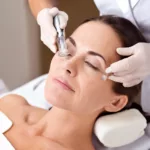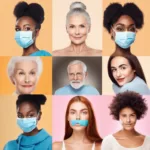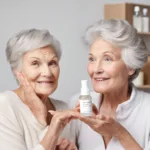21 December 2023
Toxic Social Media Culture and the Impact on Gen Z’s Perception of Aging
In a world dominated by social media, where youth and beauty are highly valued, it comes as no surprise that even the youngest members of Generation Z are obsessing over anti-aging. From slathering themselves in serums to using anti-wrinkle tape and even resorting to “baby Botox,” teens and young adults are going to extreme lengths to preserve their youth. This phenomenon is a testament to the toxic nature of social media, particularly for young girls, who are constantly bombarded with unrealistic beauty standards and the pressure to look flawless. The rise of platforms like TikTok has only exacerbated this obsession, with hashtags like #antiaging, #botox, and #wrinkles amassing billions of views. However, this trend raises concerns about the long-term effects on these young individuals’ physical and mental well-being.
The Influence of Social Media:
The influence of social media on Gen Z’s obsession with anti-aging cannot be overstated. Platforms like TikTok have become the natural home for this trend, with countless videos showcasing young girls’ elaborate anti-aging routines. One particularly disturbing example is that of a 14-year-old influencer who claims to have been refining her anti-aging routine since the age of twelve. Her routine includes SPF 50 sunscreen, apple cider vinegar pills, harsh retinol creams, and even taping pink construction paper to the car window to avoid sun exposure during road trips. These behaviors are a direct result of the beauty-centric culture perpetuated by social media, where likes and comparisons with peers reign supreme.
The Rise of Anti-Aging Products:
Makeup brands targeting young women, such as Glossier and Elf, have tapped into the anti-aging market by introducing expensive Vitamin C serums and retinol creams. Zoomers, as they are often called, are investing their time and money in these products in the hopes of preserving their youth. Some even go as far as using anti-wrinkle tape, believing that it will prevent lines from forming. Additionally, young women are seeking “baby Botox” treatments, freezing their muscles to preemptively prevent wrinkles, even before they have any. This willingness to spend hundreds to thousands of dollars on these treatments highlights the extent to which Gen Z is buying into the anti-aging hype.
Expert Advice and Concerns:
While the pursuit of eternal youth may seem enticing to Gen Z, experts are cautioning against starting anti-aging measures too early. Countless doctors have taken to TikTok to advise against fighting aging prematurely. Dr. Chris Tomassian recommends starting retinol for anti-aging in the late 20s at the earliest, while Dr. Mundeep Shah advises waiting until the mid 20s to mid 30s for Botox treatments. Dr. Amanda Hanson raises concerns about the long-term consequences of these early interventions, wondering where it will end for these young individuals. The perpetual battle against time and nature may lead to a lifetime of dissatisfaction and insecurity.
The Impact of Digital Natives:
Gen Z, being digital natives, have grown up curating their social media personas and constantly seeking validation through likes and popularity. From emulating young adult influencers in their tween years to now desperately attempting to look younger, these young individuals have been caught in a cycle of self-comparison and insecurity. The aging filter on TikTok, which shows users an “eerily accurate” view of their future wrinkled selves, only intensifies their fear of aging. Gen Z is losing out on the carefreeness of youth as they become slaves to self-comparison and constantly discover new insecurities online.
Conclusion:
The obsession with anti-aging among Gen Z is a clear reflection of the toxic influence of social media and the pressure to conform to unrealistic beauty standards. These young individuals are prematurely concerned about aging, resorting to extreme measures to preserve their youth. However, experts warn against starting anti-aging interventions too early, as it may have long-term consequences on both physical and mental well-being. Gen Z’s digital native status has left them vulnerable to the constant battle for likes and popularity, robbing them of the carefreeness of youth. As a society, it is crucial to address these issues and promote a healthier perspective on aging and beauty.



